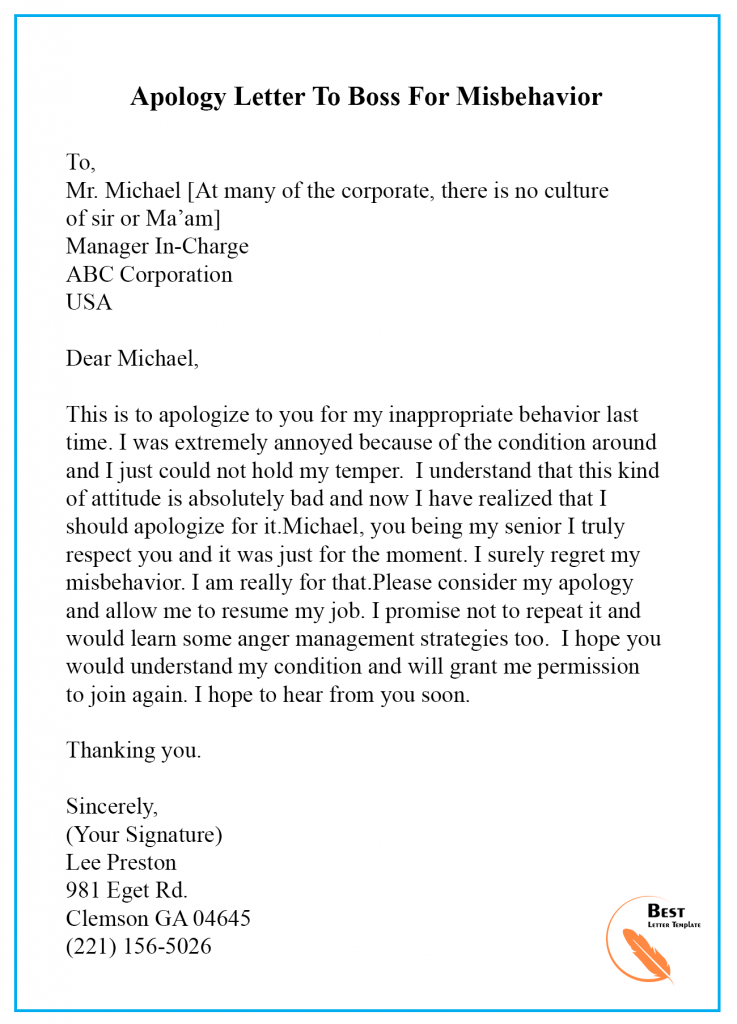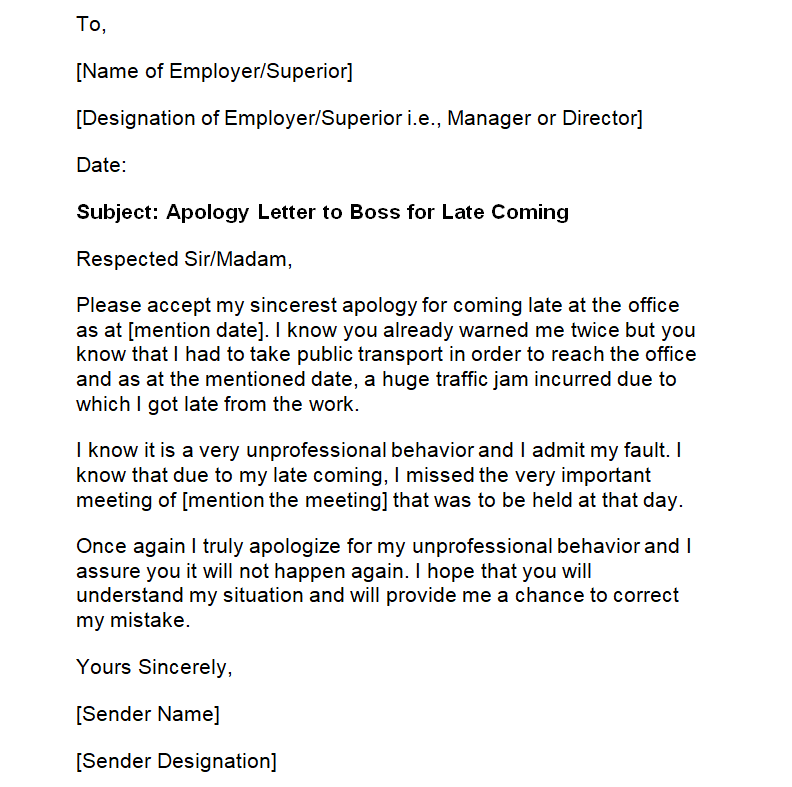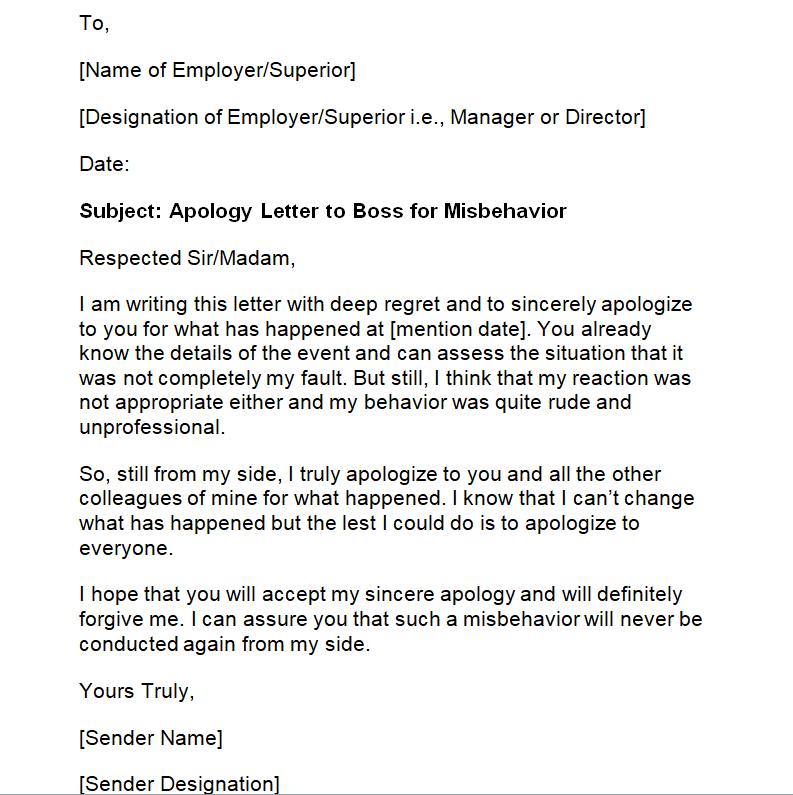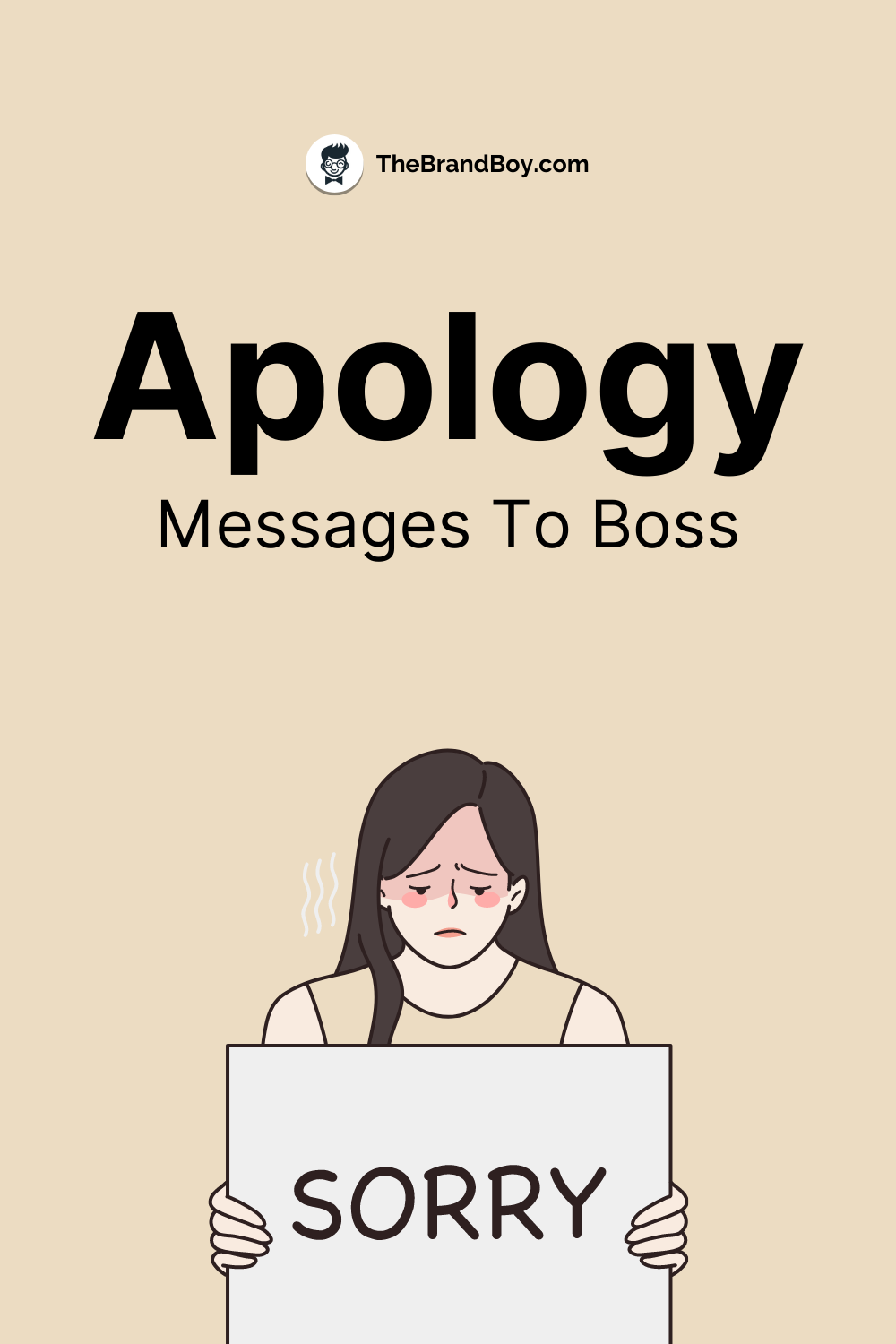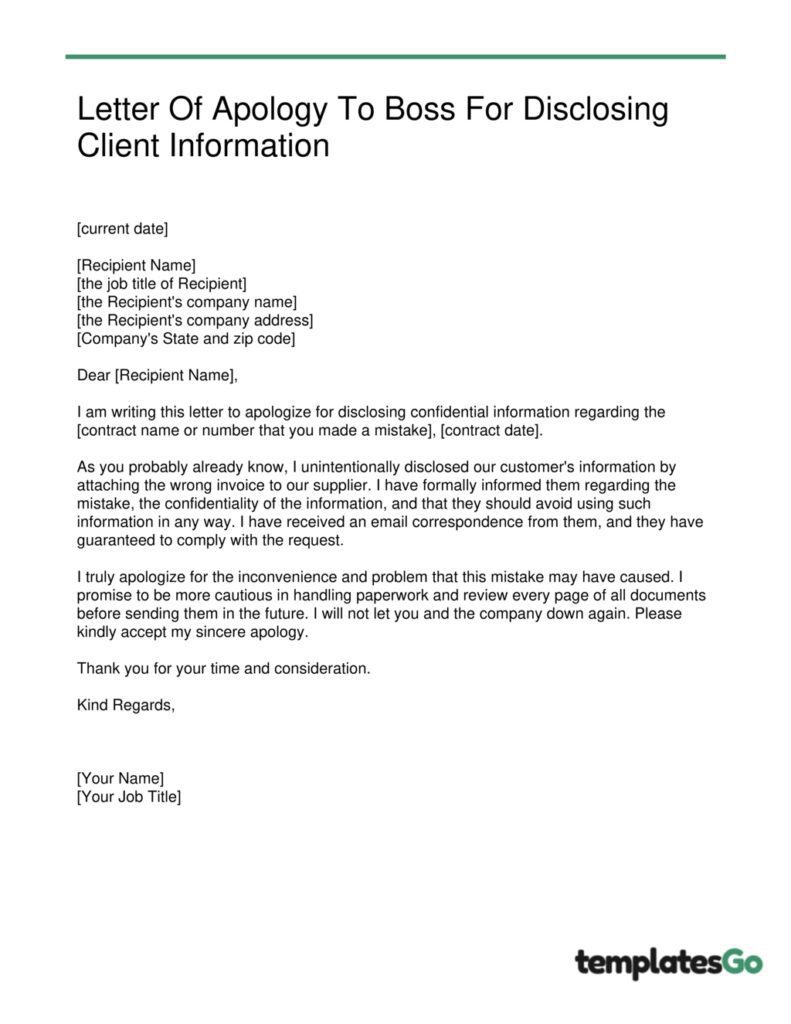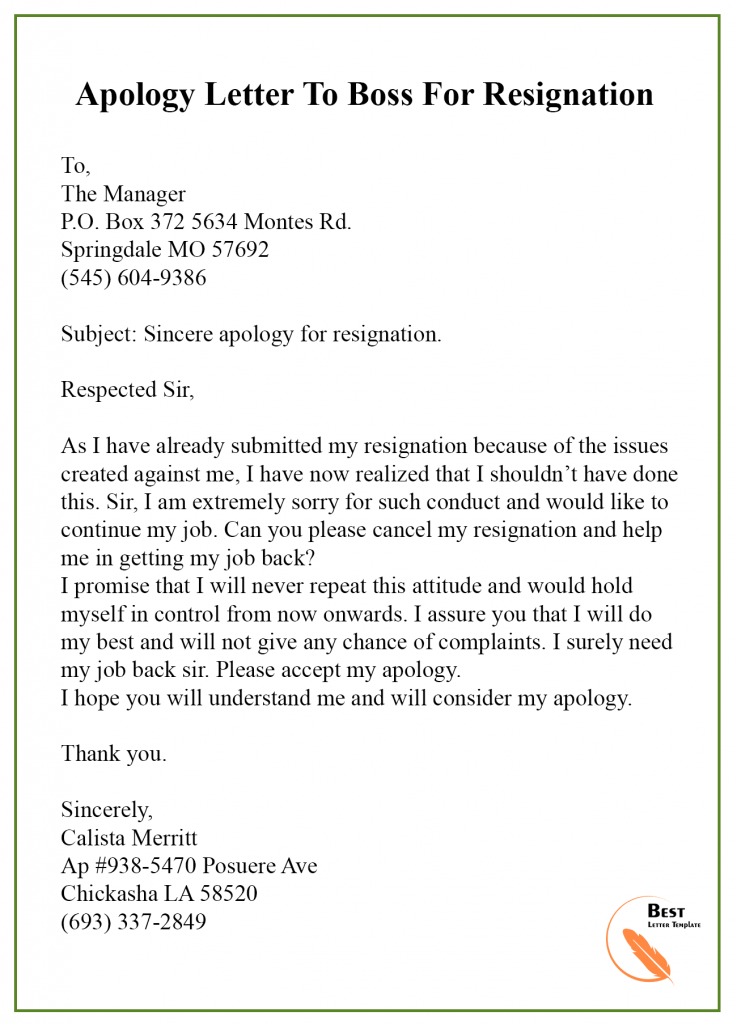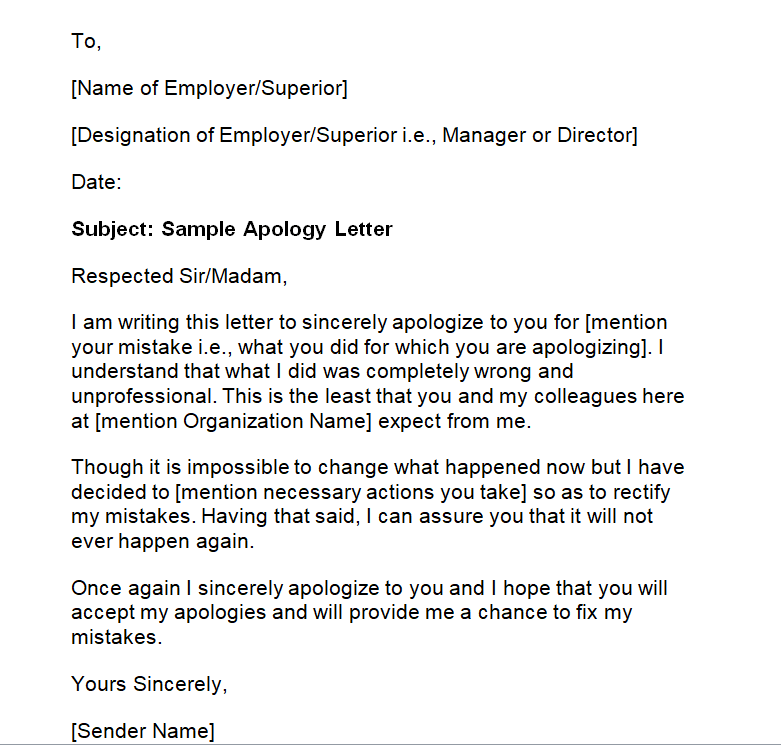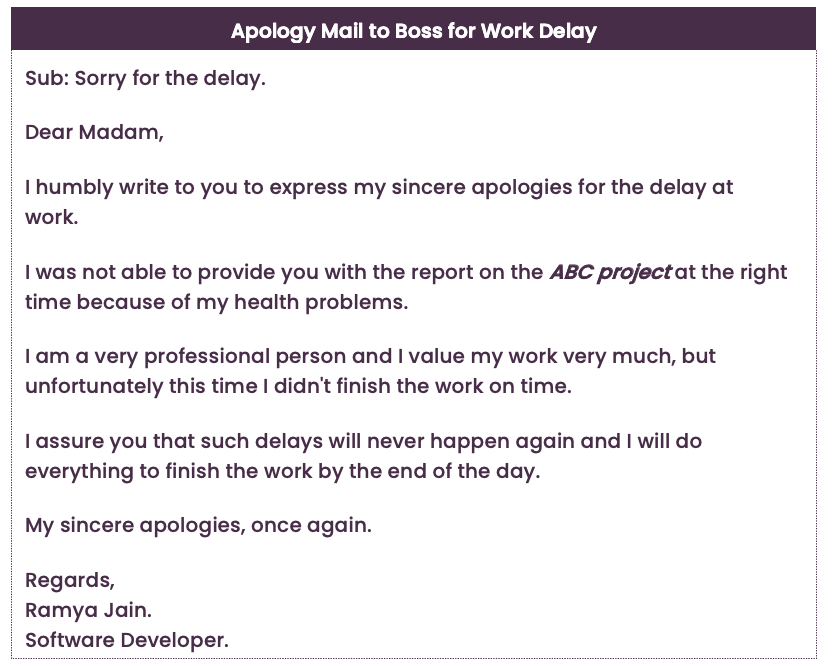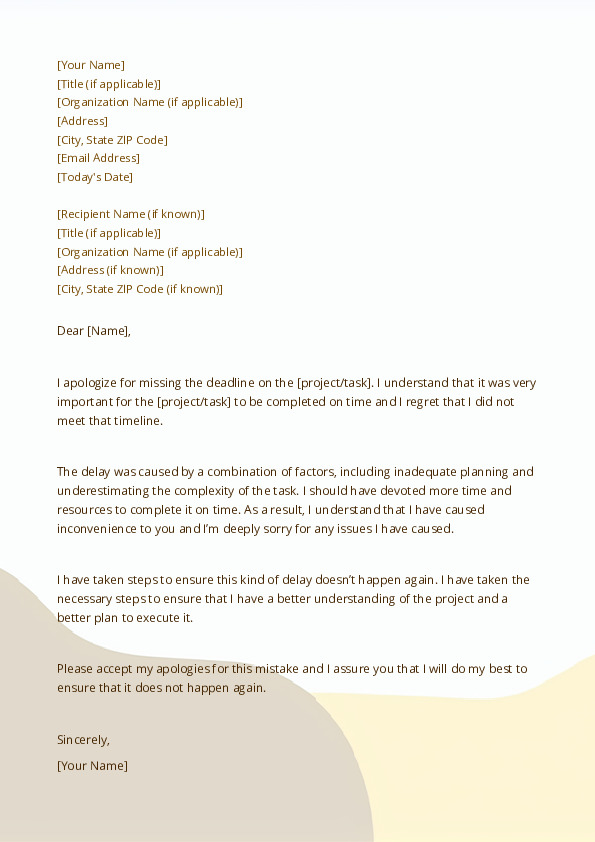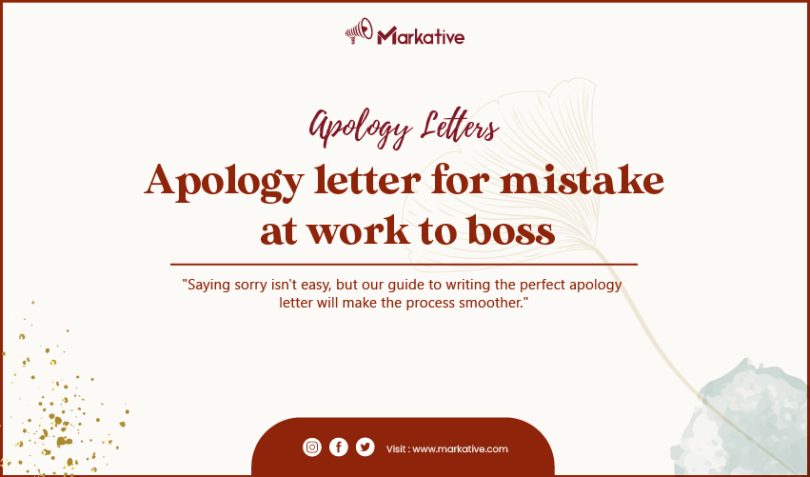How To Apologize To Your Boss For Missing Work
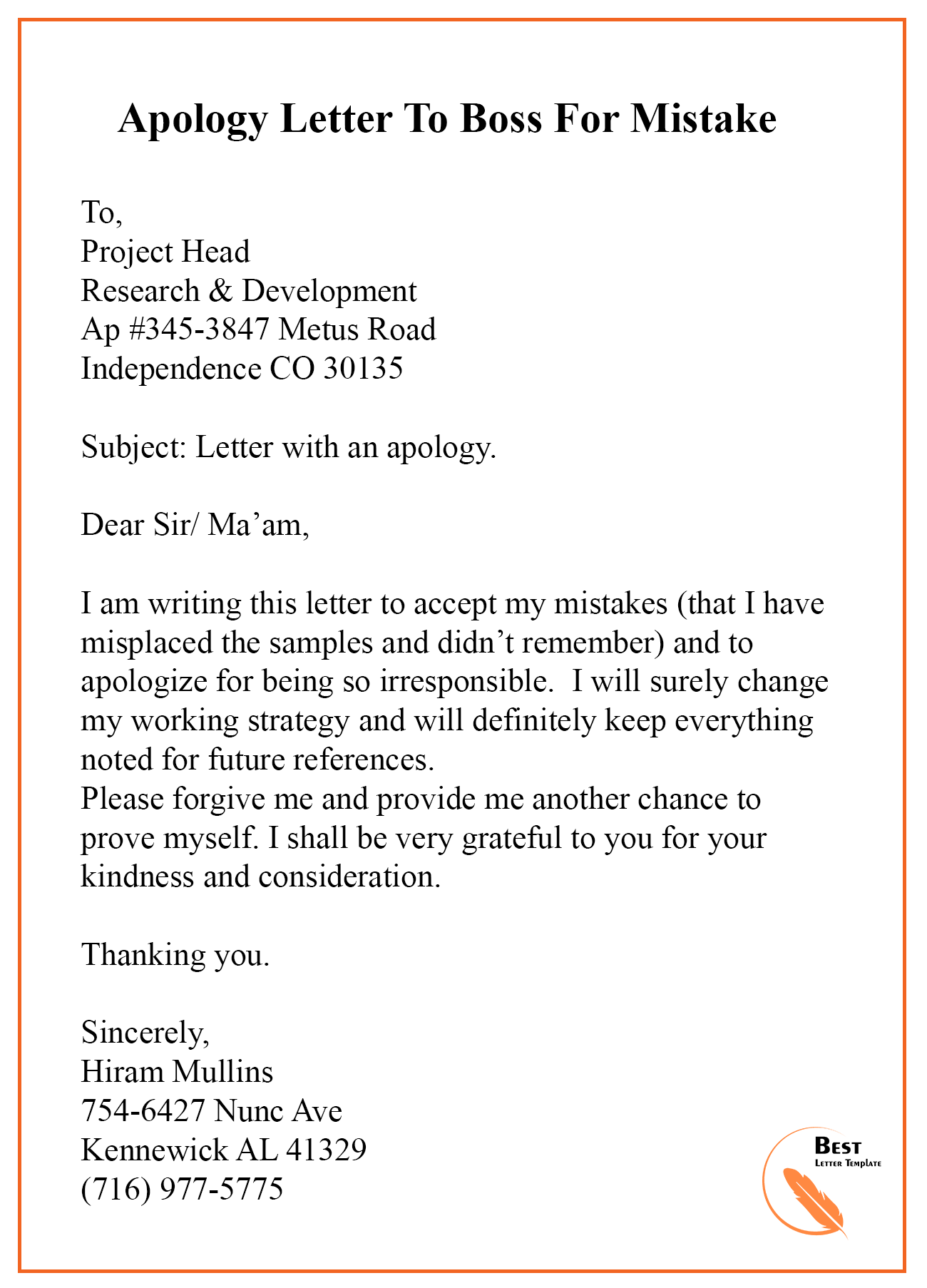
Employees nationwide are grappling with the delicate task of apologizing to their superiors after unexpected absences. Experts emphasize that a sincere and prompt apology, coupled with a proactive plan, is crucial for maintaining professional standing.
Navigating the aftermath of missing work requires careful consideration. A well-crafted apology can mitigate potential damage to your reputation and demonstrate accountability. Here's how to approach the situation effectively.
Immediate Steps After Missing Work
Contact your supervisor as soon as possible. This is the first and most critical step. Don't delay – immediate communication shows respect for your boss's time and the company's operations.
Explain the situation briefly and honestly. Avoid excessive details or excuses. Focus on conveying the essential information without sounding defensive.
Express sincere remorse for the inconvenience caused. Use phrases like, "I am truly sorry for the disruption my absence caused." Acknowledge the impact of your absence on your team and workflow.
Crafting Your Apology
Send a formal apology email. This provides a written record of your acknowledgement and remorse. This also shows that you are prepared and have thought about what you want to convey.
Begin with a clear statement of apology: "Please accept my sincerest apologies for missing work on [Date]." Be direct and avoid ambiguity.
Briefly reiterate the reason for your absence, if appropriate. If it's a personal or sensitive matter, you can keep it general, such as "due to unforeseen circumstances."
Take ownership of the situation. Avoid blaming others or external factors. Accountability is key to rebuilding trust.
Outline steps you've taken or will take to rectify the situation. This demonstrates your commitment to minimizing the impact of your absence.
Demonstrating Accountability
Offer to catch up on missed work immediately. Prioritize urgent tasks and deadlines. Be willing to put in extra effort to get back on track.
Ask your supervisor how you can further assist in mitigating any negative consequences. This proactive approach shows your dedication to the team.
Provide reassurance that this will not happen again. If your absence was due to illness, emphasize your commitment to taking necessary precautions in the future.
"According to a 2023 study by the Society for Human Resource Management (SHRM), 68% of employers value honesty and transparency above all else when an employee misses work unexpectedly."
Document everything. Keep records of your communication with your supervisor, completed tasks, and any relevant documentation related to your absence.
What NOT To Do
Do not ignore the situation or hope it will go away. Silence can be interpreted as indifference or lack of accountability.
Avoid making excuses or blaming others. This undermines your credibility and demonstrates a lack of responsibility. This creates a negative image for you.
Don't over-apologize. A sincere, concise apology is more effective than excessive groveling.
Never lie about the reason for your absence. Honesty is always the best policy, even if the truth is uncomfortable.
Addressing Potential Concerns
Be prepared for questions from your supervisor. Answer them honestly and professionally. Show that you are prepared.
Acknowledge any concerns your boss may have about your reliability. Reassure them of your commitment to your job and the company.
If your absence was due to an ongoing issue, be open to discussing potential solutions with your supervisor. This could involve adjusting your workload or seeking additional support.
Follow up with your supervisor after a few days to ensure they are satisfied with your progress in catching up. This demonstrates your ongoing commitment to rectifying the situation.
Moving forward, prioritize open communication with your supervisor regarding any potential challenges or issues that may impact your attendance. Proactive communication can prevent future absences and build stronger working relationships. By taking these steps, employees can effectively apologize for missing work, rebuild trust, and maintain their professional standing.



